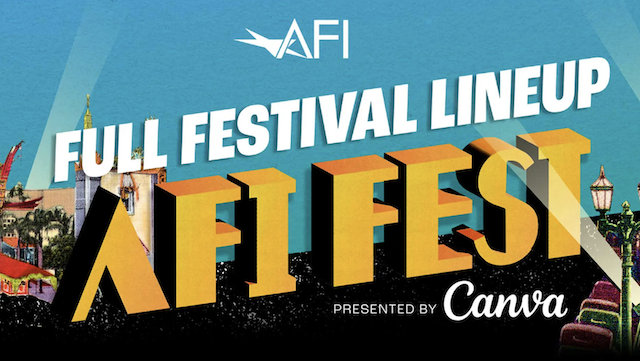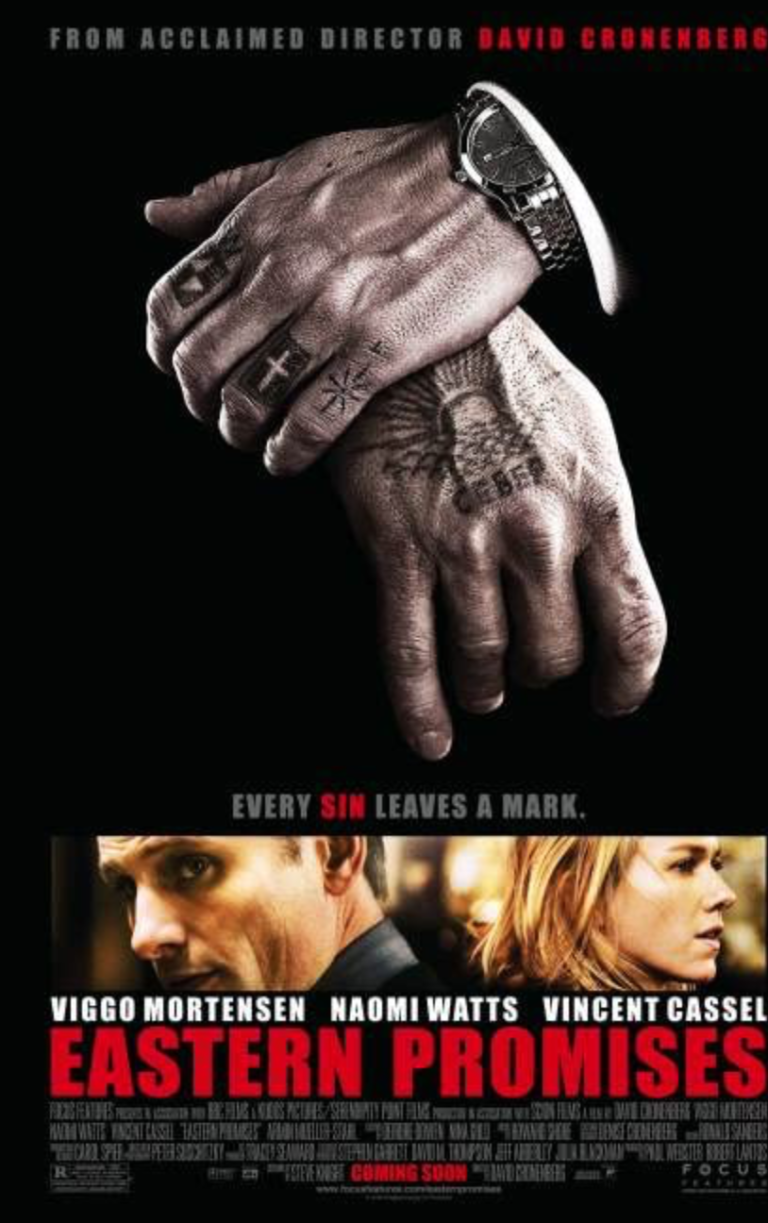
Synopsis : Nikolai (Viggo Mortensen), who is both ruthless and mysterious, has ties to one of the most dangerous crime families in London. He crosses paths with Anna (Naomi Watts), a midwife who has come across potentially damaging evidence against the family, which forces him to set in motion a plan of deceit, death and retribution.
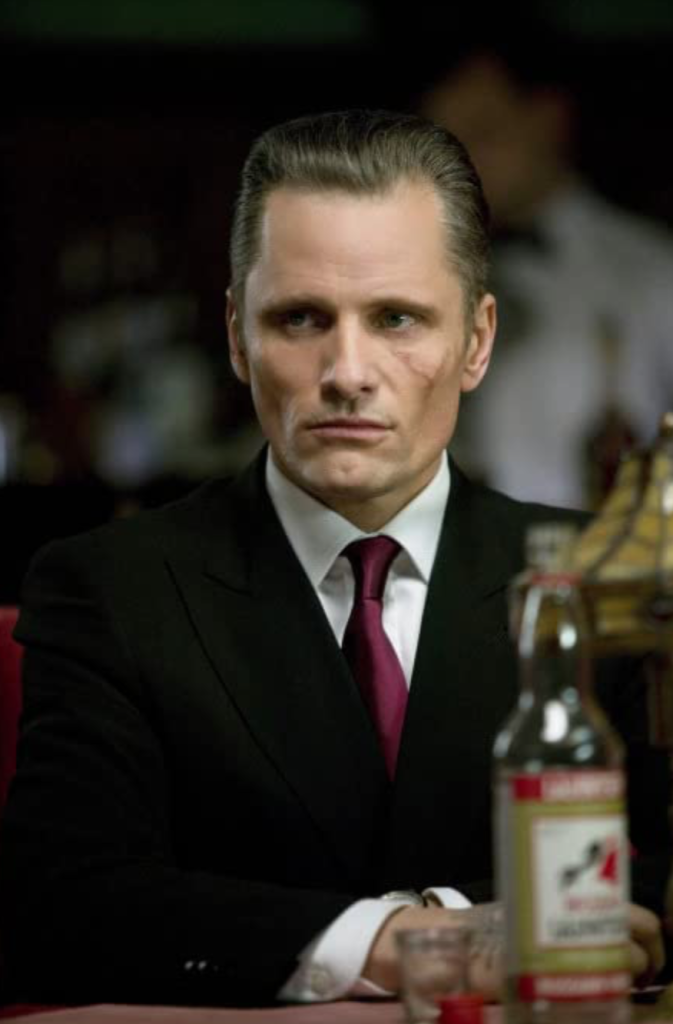
Q&A with Actor Viggo Mortensen on “Eastern Promises”
Q : The way back to 2007, ” Eastern promises” came out a couple of years after you had worked with David Cronenberg on “A History of Violence” and both of those movies, you play a man who has the capacity to kill, but these are very different characters. And I wonder if you could talk a little bit about what the path was from your character in the history of violence to Eastern promises?
Viggo Mortensen: Well, “A History of Violence”, meaning the first time I worked with the COVID wish. In the autumn of 2004 and the movie was a TIFF, was it 2005? And that was a great experience getting to know him, working with him. The character in that movie, it was quite different from the character and Eastern promises, but there was something similar about both characteristics in that.
The similarity of the two characters was that they were pretending to be something. They were not, and they both required a certain stillness trusting that the character would come across in key moments with very little gesture, physical movement, just subtle things.
And I had learned on “A History of Violence” to trust David, that he was looking for those things and he would care for them during the shoot. And, as I saw the end result and the editing. And that was true to “Esatern Promises” as well, but it was my first time at a big premier of “A History of Violence.” And while there was, it went to Cannes but then a TIFF, because it’s his hometown, it was an amazing experience. And then , “Eastern Promises” was truly stunning. I remember being at Roy Thompson Hall, packed house, a lot of important actors directors came to see what David had done or we’d all done.
And Naomi Watts was there, Vincent Cassel, I wished Armin Mueller-Stahl was there. He’s great in the movie as well as the godfather. But it was a wonderful experience. Great long standing ovation at the end. And it was an important spring board for “Eastern Promises.” You know, a month or so before it’s released.
Q: You went on to get an Academy Award nomination for your performances, Nikolai. And I want to actually go back to building that character. He’s a really unique character, I think, in your filmography and in cinema generally, really remarkable scary man. And I guess it often starts with the screenplay in this case written by Steven Knight who had written “Dirty Pretty Things” in terms of building the collects. I know you did a lot of research for that role. What was in that initial script that you read and then how did you build from there?
Viggo Mortensen: It was a really well structured story. The more I got into the research the first thing I did, I was in Los Angeles at the time living there. And I’ve gotten to know David well during ” A History of Violence.” And we’d stayed in contact afterwards, speaking, not just about movies, but all kinds of things. And as we started to prepare this, we talked a lot about the way Russia was at that time, the history of organized crime, what we know about it, but also Russian literature and politics.
And one of the first things I did is I found someone, a Russian who helped me translate all the dialogue. Not that I was going to speak Russian the whole time, but in speaking with David, we probably were going to add a little more than was intended. You know, where in the script it said in Russia and there’s only a few places.
And seemed like we might do a little bit. And anyway, I just wanted to be ready. It was good exercise. And also talking to this Russian person about humor, what things are just the emotional through line of the character. I also want to, Russia taught me a lot about what people laugh about, where they express themselves, how they are in a tactile sense, how people are guarded in a way.

Q : What kinds of things that did you pick up in Russia, what did you learn that you didn’t know before you went?
Viggo Mortensen: Well, it didn’t surprise me, but I didn’t know how fatalistic their sense of humor was. You know, you’d hear things like a the few people I talked to, they might say something like, “Well, it’s been a good week or a good day, Today, but then there’s Tomorrow. They’re always expecting something terrible to have , maybe it has to do with centuries of oppression and suffering. I don’t know. It was just watching how people interact on the street in bars, subway stations on the trains in cities that are in the country.
Okay. I ran around quite a bit, Moscow , St. Petersburg. And then I went to the interior to the Euro region. It gets it in bold where, Nikolai’s supposed to be from or says he’s from my rented a little car drove around, saw a lot of stuff. One thing that was interesting, and I wasn’t looking for this at all.
But I was in a hotel there one night and I was watching Putin in 2006 October, I guess. And he was giving a nationally televised speech and his body language is like perfect control and laser focus on the way he held his hands. And the look in his eye. I started watching him and I haven’t turned the sound off just to watch his body language.
And that gave me something, I’m not sure exactly what it was, but it helped me with Nikolai’s body language and his sort of physical attitude, the way he looked at people, and have almost this always sizing of the situation , sizing up the person in front of you, almost like a quiet predatory potential at all times, I guess.
Q : Definitely there in the film, and your performance. There’s also an element that is very much part of the story, which is the tattoos that he had that are a part of Russian gangster lore. And I understand that he did some research there as well.
Viggo Mortensen: Did I serve a film by Alex Lambert, American woman who was made several documentaries, she’s an artist plastic artist, and she went on her own to Russia, because she wanted to make a movie about this traditional Russian criminal tattoos. And she somehow got into several maximum security prisons and spoke to both male and female murderers, thieves, pagers, people to ask them questions about these tattoos, about what they meant.
Now things have evolved. And they were even when she was making the movie where the younger generation of criminals were starting to use things that you see all over the world, you know, Polynesian style tattoos, and so forth, but there were still remnants of the old code. You know, your tattoos spoke about what crimes you’d committed, how many sentences you served, for example, the tattoos on my back and the movie that have the church, how many towers, each represent a prison term for example, some tattoos say whether you are in for murder, for robbing and rape anything. They tell your story. And so that wasn’t really in the script to begin with. And I showed this movie to David, and David got to know Alex a bit, and there’s also some books. That you may have seen, or some of your viewers may have seen Russian criminal tattoo.
There’s two, three volumes. And those have a lot of those tattoos and we took some of those and some other ones that I found, and that’s where we ended up covering my body with, and I’d probably be affected some of the writing, you know, Stephen Knight then wrote a scene where I’m being interrogated.
I have to pass a test in front of the mobsters and they look at the tattoos and read me, read my body and question me about it. Question my loyalty, they want to see if I’m authentic or if I’m not ready, you know, which could be the end of my life. Not just that I wouldn’t be accepted into the family if I was caught lying.
Again, those in her document. It’s described how, when prisoners and those jails sometimes, or defines someone had a tattoo, the claim, a deed, a crime that they actually hadn’t commended. They were forced to, to cut it off with a knife or no farmed off, pinned down. Removed from their body and then they were beaten up and who knows what else? But so they were serious about the tattoos. It was kind of like your passport.
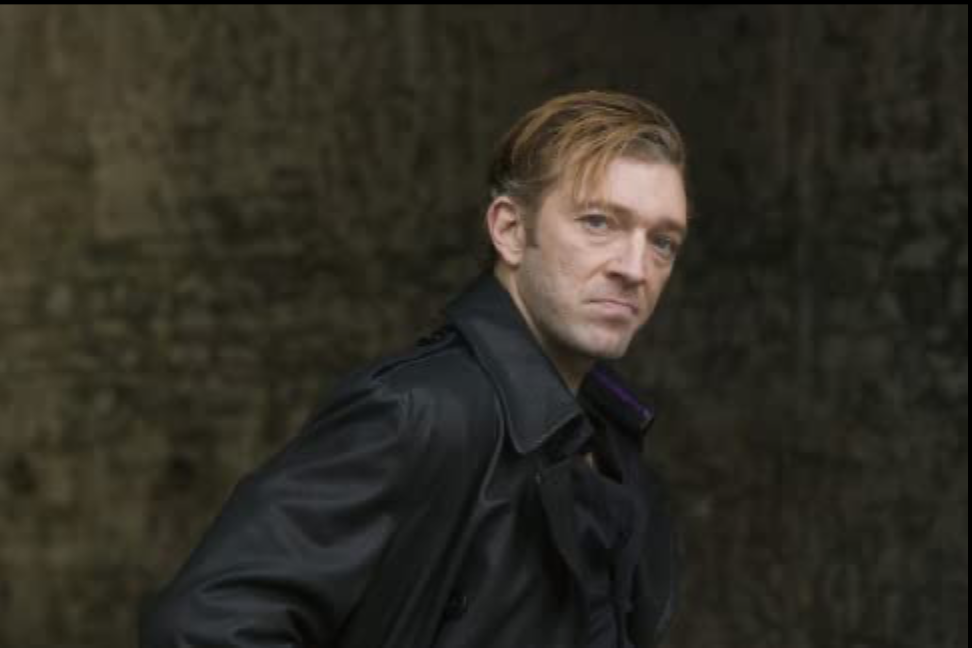
Q : There’s so many really memorable moments, images associated with your character in the film. The first time when he puts out a cigarette on his tongue, suddenly that tells you so much about who this guy is. And then there’s a moment where it feels like he should be completely vulnerable to the fight scene in the bath, where he’s naked. He has a towel at first, and then you have to fight to defend your life with nothing, you know, you’re completely exposed.
But you also see his strength and his power in that scene as well. And it’s really such a memorable scene. You talk a little bit about just establishing the who Nikola is through those physical elements, you know what he’ll do physically, and then that fight scene in particular.
Viggo Mortensen: Well, that was something. When I was in Russia, I also found in a used bookshop, this manual, military manual with photos of hand to hand fighting tactics. And I showed this book to one of the guys was in that fight. There were two Chechen people. What the actors were actually a guy from Georgia country, not the United States, who had been in the Russian military.
And he said, oh yeah, yeah, these are things we trained in. So we incorporated some of those moves into the fight, and the other guy was a Turkish origin, a heavyweight boxer. And they were both really good stuntman and an actor. So it made that fight much more realistic, I guess. But we worked hard on the choreography and I knew as we were preparing that, it was going to be painful. It was going to be uncomfortable. And the nudity was really, it just made sense. I mean, your towel is not going to stay on fight like that. So it didn’t really think about that. It was more being really focused on not to get hurt obviously, but also the bruises to be able to complete the fight successfully and to have it look real and original.
We worked really hard on that choreography and David was quite efficientPeter Suschitzky, his cinematographer. They did a great job planning how to shoot that scene. And I thought we were done in one day, which would have been great, but they said, we need a couple close-ups of some things, so we’ll do that Tomorrow.
And when I came in the next day, you know, it was a process putting these tattoos on or touching them up, took a while we got it down to 45 minutes, maybe an hour, whereas it had been a couple hours at first, but then it took another hour, at least that morning to also cover all the bruises from the day before, because all those landings on the floor and all that.But other than that, when you know it was going to be uncomfortable, but that was part of what would make it.
Q : David Cronenberg, you’ve worked with him three films completed, one film on the way. And you had this remarkable cast around you on set as well. Naomi Watts, Armin Mueller-Stahl, and so many others. What seemed like with his actors?
Viggo Mortensen : Well, he’s really good at casting to start with, which is really important. He knows that at least half his job is done in terms of getting performances. And the casting process is very careful about that. Very attentive. It’s not looking as you read, he talks with you, you might have your read depending on the part, but he’s looking at you, looking at your body language and seeing how you react, I suppose, to his questions. So he selects the cast really well, and then he trusts his casting. I mean, he’s had a lot of experience directing, so that’s part of why he knows how to get a good performance, but he’s also tried it.
He’s a good actor. So he knows the process. He knows how to help people make an adapt to different kinds of actors, different kinds of acting styles. And he’s very open, not just to the actress, but to the crew questions, concerns, and might have, he’s not really into rehearsing at all, but he’s open to conversation, suggestions at all times.
He’s very observant. I said that about “A History of Violence”, but it was also true of “Eastern Promises.” He was very attentive to the most minimal gesture or change of gears for many of the actors. And when I say trust the casting, he doesn’t really step in and tell you to do something or correct you unless it’s absolutely necessary.
He doesn’t really. Interfere with what you’re doing, I want to see has to, but you can feel the confidence he has in you and having selected you and in what you’re bringing to the table. And he’s not such a control freak that if you surprise him with something he didn’t expect, he doesn’t automatically shut down and discount it.
Thinks about it for a minute. And he might say, well, let’s try that again with a little bit of this added to what you’re doing, or he might say, yeah, that’s interesting, but that’s not what I want. And I it’s good for an actor to feel that the directors, a paying attention. And B knows what he wants, inspires confidence at least as far as I’m concerned.
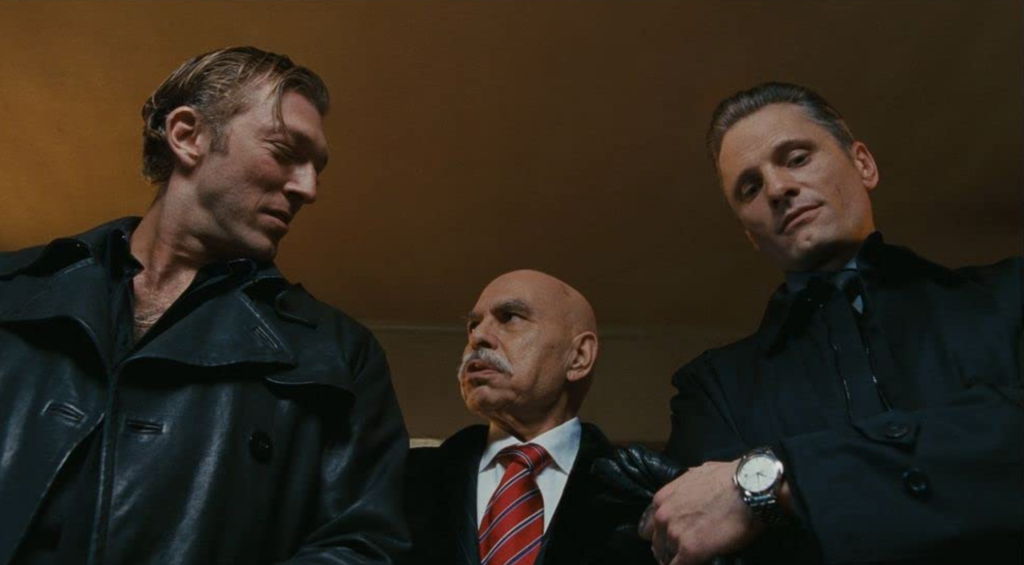
Q : But the last thing I want to ask Viggo, you mentioned that David is a director who has acted and sometimes acts in other people’s films. You’re an actor who’s directed, recently. I wonder if there’s anything that you’ve picked up having worked with David over all these years that you use in your own films as a director?
Viggo Mortensen : There’s some other directors. I mean, I’ve worked with some really talented men and women from different parts of the world, the best of them like David, but he’s probably the top in this regard. Regardless of their backgrounds or their directing style or storytelling style, they all have in common. And this is something I shared with the crew in the movie I directed “Falling” on the first day.
And that was to say to them what I’ve learned from the best. And I was thinking of David in particular, is that a good idea can come from anyone at any time, you know, and it’s, it’s to your advantage as a director, as a storyteller, to keep your mind open your ears open and to encourage participation, suggestions, questions, to not be threatened by that.
Because It can be useful, you know? And, and so I said to the crew, I said, we have a short shoot, please don’t tell me you’re a great idea about today’s scene, don’t tell me about it Tomorrow or a couple of days from now, too late. I can’t go back and do it again. We don’t have that kind of budget or schedule. Yeah, and the other thing is that you can’t prepare too much or too far in advance, and David is really meticulous about that.
He’s thinking about his shots, he’s thinking about the tone of his story each time out. I mean, there are certain things that I suppose tie his movies together. Cause it’s the same director, but they’re all remarkably different. Even the three movies that made so far “A History of Violence”, “Eastern Promises” of “Dangerous Method.”They’re all quite different in tone, the way the cameras use, even the approach to storytelling, he’s always efficient.
You know, and technically he’s on top of his game, but they’re all quite different. And this one, “Crimes of the Future”, the one we’re starting in a few days, we’re going to start shooting. That will be quite different from the other three as well. And I mean, I just prepare really well. And always open line of communication with your cast and your crew.
Q : Viggo, it has been great going down memory lane with you about “Eastern Promises.” It’s been what, 14 years since it was here at the festival, but I watched it again recently and it is as dazzling, as ever, although it’s a very still film, you just feel kind of just wowed by it when you…
Viggo Mortensen: Well, he’s pretty, he’s brave as a director because other find directors, you know, if they were directing a movie like Eastern promises, it would probably be a lot more showy in terms of the camera work. There’d be more shots he editing would be frantic as a word, but more noticeable, he’s brave enough to be very simple.
Allow, not just my character where the camera to be very still at times and to tell, seen, in terms of shot selection and a very straight forward, subtle and direct way. Other directors, I don’t know if they would have done that kind of story.
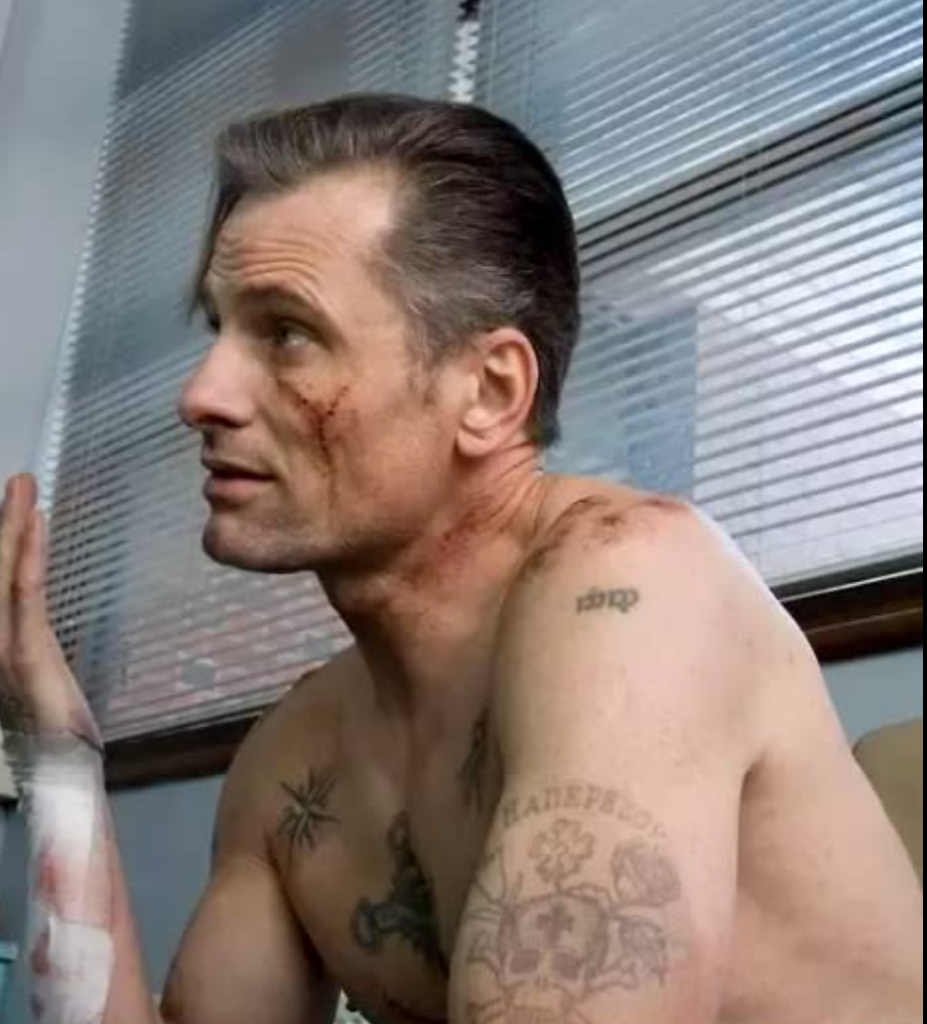
Q : The story lends itself to being a little bit more, a lot of slurish is in the direction and he doesn’t do that. And I find that that, that stillness and that intensity actually has a greater impact. And your performance.
Viggo Mortensen: When he does, go for it. You know, the speed and the number of shots when it gets amped up, it means a lot more because it’s so happens in selective of moments, that happened in “A History of Violence”as well.
Q : It really remarkable sequences in that film as well, where you get shocked by what suddenly happens.
Viggo Mortensen: By the way, thank you for showing this money again at TIFF, to the TIFF audience, we had a great success in 2007. Number one, the audience award, and as I say, it was a, it was a great springboard for the movie to then go out to the public after the festival. And it’s great that it’s, I forgot for so long…
Q : Well, thanks again for, for taking the time to talk about it. And If you’re in Canada watching, you can go over and crave and watch “Eastern Promises”for the first time or for the 10th time. That movie is just one of the great. Viggo, thank you very much for doing this.
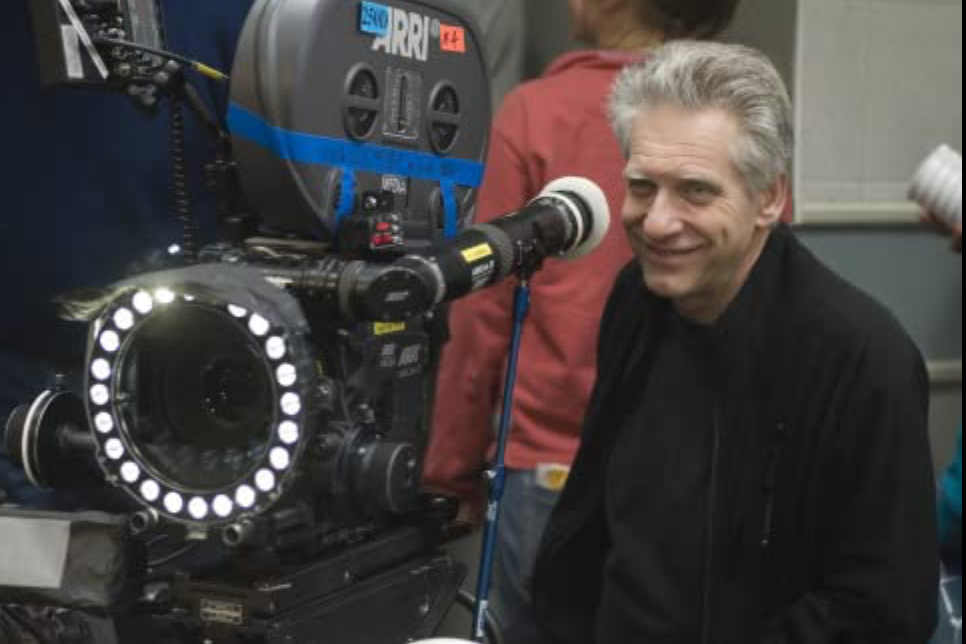
Here’s the trailer of the film.

